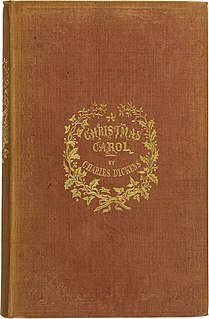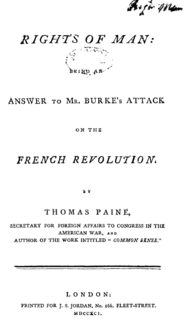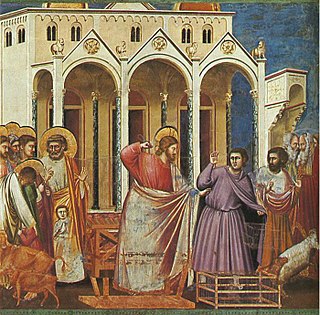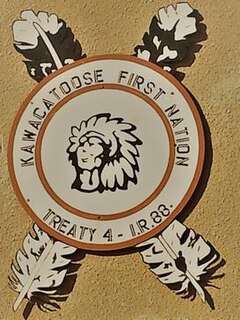| | |
 | |
| Written in | C / C++ |
|---|---|
| Operating system | BeOS like |
| Type | Lightweight web-server |
| License | MIT |
| Website | http://www.haiku-os.org/ |
PoorMan is a light-weight web server bundled with the BeOS and Haiku operating system.
| | |
 | |
| Written in | C / C++ |
|---|---|
| Operating system | BeOS like |
| Type | Lightweight web-server |
| License | MIT |
| Website | http://www.haiku-os.org/ |
PoorMan is a light-weight web server bundled with the BeOS and Haiku operating system.

White trash is a derogatory racial and class-related slur used in American English to refer to poor white people, especially in the rural southern United States. The label signifies a social class inside the white population and especially a degraded standard of living. It is used as a way to separate the "noble and hardworking" "good poor" from the lazy, "undisciplined, ungrateful and disgusting" "bad poor". Use of the term provides for middle- and upper-class whites a means of distancing themselves from the poverty and powerlessness of poor whites, who cannot enjoy those privileges.

A Christmas Carol. In Prose. Being a Ghost Story of Christmas, commonly known as A Christmas Carol, is a novella by Charles Dickens, first published in London by Chapman & Hall in 1843 and illustrated by John Leech. A Christmas Carol recounts the story of Ebenezer Scrooge, an elderly miser who is visited by the ghost of his former business partner Jacob Marley and the spirits of Christmas Past, Present and Yet to Come. After their visits, Scrooge is transformed into a kinder, gentler man.

The Beatitudes are sayings attributed to Jesus, and in particular eight blessings recounted by Jesus in the Sermon on the Mount in the Gospel of Matthew, and four in the Sermon on the Plain in the Gospel of Luke, followed by four woes which mirror the blessings. Each is a proverb-like proclamation, without narrative.

Rights of Man (1791), a book by Thomas Paine, including 31 articles, posits that popular political revolution is permissible when a government does not safeguard the natural rights of its people. Using these points as a base it defends the French Revolution against Edmund Burke's attack in Reflections on the Revolution in France (1790).

Lochaber is a name applied to areas of the Scottish Highlands. Historically, it was a provincial lordship consisting of the parishes of Kilmallie and Kilmonivaig, as they were before being reduced in extent by the creation of Quoad Sacra parishes in the 19th century; this Lochaber extended from the Northern shore of Loch Leven, a district called Nether Lochaber, to beyond Spean Bridge and Roybridge, which area is known as Brae Lochaber or Braigh Loch Abar in Gaelic. Lochaber is now also used to refer to a much wider area, one of the 16 ward management areas of the Highland Council of Scotland and one of eight former local government districts of the two-tier Highland region. The main town of Lochaber is Fort William.

Urinetown: The Musical is a satirical comedy musical that premiered in 2001, with music by Mark Hollmann, lyrics by Hollmann and Greg Kotis, and book by Kotis. It satirizes the legal system, capitalism, social irresponsibility, populism, bureaucracy, corporate mismanagement, and municipal politics. The show also parodies musicals such as The Threepenny Opera, The Cradle Will Rock and Les Misérables, and the Broadway musical itself as a form.

The rich man and Lazarus is a parable of Jesus from the Gospel of Luke. Speaking to his disciples and some Pharisees, Jesus tells of an unnamed rich man and a beggar named Lazarus. When both die, the rich man goes to Hell and implores Abraham to send Lazarus from his side in Heaven to warn the rich man's family from sharing his fate. Abraham replies, "If they do not listen to Moses and the Prophets, they will not be convinced even if someone rises from the dead."

The Ghost of Christmas Present is one of three fictional Christmas Spirits who visit Ebenezer Scrooge in the 1843 novella A Christmas Carol to offer him a chance of redemption. Appearing in Stave Three, the Ghost of Christmas Present is presented in the drawing by John Leech as resembling early-Victorian images of Father Christmas, and thus is a personification of the Christmas spirit.

Monsieur Vincent is a 1947 French film about Vincent de Paul, the 17th-century priest and charity worker. It depicts his struggle to help the poor in the face of obstacles such as the Black Death.

Saint Homobonus is the patron saint of business people, tailors, shoemakers, and clothworkers, as well as of Cremona, Italy.
The 34th Golden Globe Awards, honoring the best in film and television for 1976, were held on January 29, 1977.
The philosopher Plato categorized governments into five types of regimes : aristocracy, timocracy, oligarchy, democracy, and tyranny. Plato illustrates each of these regimes in the Republic with a prototypical man with the characteristics of the regime. Plato argues that some of these regimes are intrinsically superior to others and that the five regimes have a tendency to progressively degenerate starting with aristocracy at the top and tyranny at the bottom. The five regimes system shows that Plato did not hold a high opinion of democracy in general.
Rich Man, Poor Man is a 1976 American television miniseries based on the 1969 novel of the same name by Irwin Shaw that aired on ABC in one or two-hour episodes mostly on Monday nights over seven weeks, beginning February 1. It was produced by Universal Television and was the second time programming of this nature had been attempted. The first TV miniseries, QB VII, had aired — also on ABC — in 1974. These projects proved to be a critical and ratings success and were the forerunner for similar projects based on literary works, such as Roots and Shōgun. The miniseries stars Peter Strauss, Nick Nolte and Susan Blakely.
The Stolen Loaf is a 1913 American drama film directed by D. W. Griffith.
The 28th Primetime Emmy Awards were handed out on May 17, 1976. The ceremony was hosted by John Denver and Mary Tyler Moore. Winners are listed in bold with series' networks in parentheses. As of 2019, this was the last Emmy Awards ceremonies held during the first half of a calendar year.
The 29th Primetime Emmy Awards were held on Sunday, September 11, 1977. The ceremony was broadcast on NBC. It was hosted by Angie Dickinson and Robert Blake.

There have been a variety of Christian views on poverty and wealth. At one end of the spectrum is a view which casts wealth and materialism as an evil to be avoided and even combated. At the other end is a view which casts prosperity and well-being as a blessing from God.
The Poor Laws of the Isle of Man refer to the legislation relating to poor relief passed on the Isle of Man during the 19th century.

The Kawacatoose First Nation is a Plains Cree First Nations band government in Saskatchewan. Their reserves include:

"The Grave Mound" is a German fairy tale collected by the Brothers Grimm, KHM 195. It is Aarne-Thompson type 779, Divine Rewards and Punishments.